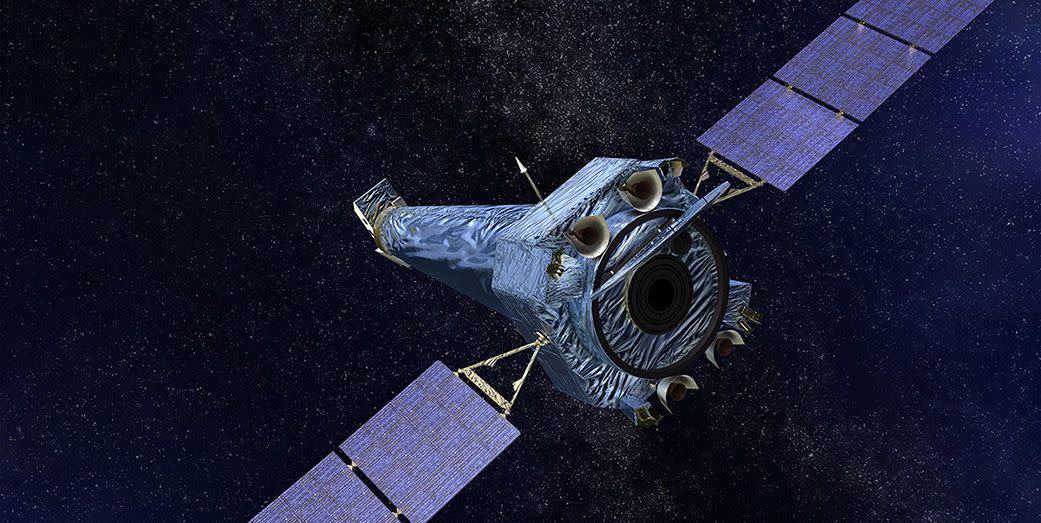Another NASA Space Telescope Has Gone Offline

Last weekend, news broke that NASA’s Hubble Telescope was suffering from an equipment malfunction. Today, NASA is reporting that a second orbital telescope, the Chandra X-Ray Observatory, appears to be suffering from the same malfunction, making this the second of NASA’s Great Observatories to be shut down in less than a week.
The problem facing Hubble and Chandra is one that limits the lifespans of pretty much all space-based telescopes: Their gyroscopes are breaking down. The spacecrafts’ gyroscopes are small spinning wheels that work to rotate the telescope and keep it stable while observing. They’re crucial for the spacecraft’s work, but because they’re moving parts they tend to wear out over time.
Both Hubble and Chandra are getting pretty old, which makes these kind of breakdowns inevitable. Hubble has been in space for nearly three decades, Chandra is only slightly younger than that. Both telescopes haven’t been visited by repair crews since the Space Shuttle program shut down. These sorts of breakdowns are expected.
Losing Chandra is even more of a blow to the astronomy community than losing Hubble. The Hubble telescope is designed to look at the universe in visible light, the same wavelengths our own eyes can see. But Chandra sees everything in X-rays, which can tell astronomers more information about high-energy objects like black holes and quasars.
Unfortunately-at least, unfortunately for astronomy, but slightly less so for our survival-our atmosphere blocks high-energy light sources like X-rays, which means the only way we see them is from space telescopes like Chandra. If Chandra breaks down, that robs astronomers of one of the only tools they have to study sources of X-rays in the universe.
Chandra does have some backup gyroscopes it can use just in case, so it probably isn’t done forever. But it is out of commission for the time being, and this is a scary preview of what’s coming in a few years when these space telescopes start failing for good. Hopefully we can get a new generation of telescopes into orbit before we lose the ones we already have.
('You Might Also Like',)

